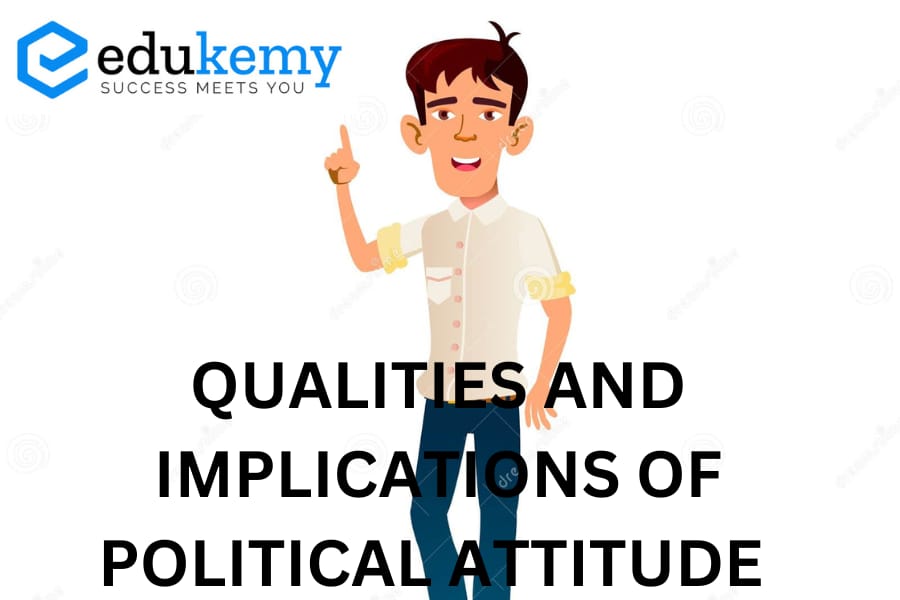
An introduction to the qualities and implications of political attitude sets the stage for understanding the complex interplay between individual beliefs, societal dynamics, and governance structures. Political attitudes encompass a spectrum of views, ranging from conservative to liberal, authoritarian to libertarian, and everything in between. These attitudes reflect individuals’ perspectives on issues such as governance, economics, social policy, and cultural norms.
At its core, political attitude reflects one’s values, beliefs, and preferences regarding how society should be organized and governed. These attitudes are shaped by a myriad of factors, including upbringing, education, socioeconomic status, cultural background, and personal experiences. Additionally, media, peer influence, and political discourse further mold and reinforce these attitudes over time.
The implications of political attitude are far-reaching and multifaceted. They influence not only how individuals perceive the world but also how they engage with it. Political attitudes guide voting behavior, political participation, and support for various policies and candidates. They also shape social interactions, community dynamics, and even economic decisions.
Understanding the qualities and implications of political attitude is essential for navigating the complexities of modern society. It sheds light on the divergent perspectives that drive political discourse, policy formation, and societal change. Moreover, it underscores the importance of dialogue, empathy, and critical thinking in fostering a constructive exchange of ideas and finding common ground amidst ideological differences.
Contents
Values and Beliefs:
Political attitudes often stem from deeply held values and beliefs about justice, equality, freedom, and order. For example, someone with a strong belief in individual liberty may advocate for limited government intervention in personal affairs. Conversely, those valuing social justice may prioritize policies aimed at reducing inequality. The implication is that these values drive preferences for specific policies and political ideologies.
Ideological Orientation:
Individuals may align with various ideological orientations such as conservatism, liberalism, socialism, or libertarianism. These orientations provide frameworks for understanding and interpreting political issues. They guide attitudes towards issues like taxation, healthcare, immigration, and the role of government. Implications include shaping voting behavior, party identification, and coalition-building in politics.
Openness to Change:
Political attitudes can reflect attitudes towards societal change and progress. Some individuals may embrace change and innovation, while others prefer tradition and stability. This openness to change influences attitudes towards social issues such as LGBTQ+ rights, environmental protection, and technological advancements. The implication is that it informs policy preferences and responses to social shifts.
Trust in Institutions:
Attitudes towards political institutions, such as government, the media, and the judiciary, vary widely among individuals. High trust in institutions often correlates with support for their actions and decisions. Conversely, low trust may lead to skepticism, dissent, or calls for reform. Implications include perceptions of legitimacy, compliance with laws, and the effectiveness of governance.
Group Identity:
Political attitudes can be influenced by social identities such as race, ethnicity, religion, gender, and socioeconomic status. Group identities shape perceptions of self-interest, solidarity, and discrimination, which in turn affect political preferences. Implications include the formation of political coalitions, representation in government, and the dynamics of identity politics.
Cognitive Biases and Heuristics:
Individuals often rely on cognitive shortcuts and biases when forming political attitudes. Confirmation bias, for instance, leads people to seek out information that confirms their existing beliefs. These biases can reinforce ideological divides, hinder compromise, and contribute to polarization. Implications include the need for critical thinking skills, media literacy, and deliberative dialogue to overcome cognitive biases.
FAQs
Q: What factors influence political attitudes?
Political attitudes are influenced by a variety of factors, including upbringing, education, socioeconomic status, cultural background, personal experiences, and exposure to media and information sources. Additionally, social identities such as race, ethnicity, religion, gender, and class can shape political beliefs and preferences.
Q: How do political attitudes affect voting behavior?
Political attitudes play a significant role in shaping voting behavior. Individuals tend to vote for candidates and parties that align with their political beliefs, values, and policy preferences. For example, someone with conservative attitudes may vote for candidates advocating for lower taxes and limited government intervention, while someone with liberal attitudes may support candidates championing social welfare programs and progressive policies.
Q: Can political attitudes change over time?
Yes, political attitudes can change over time due to various factors such as life experiences, exposure to new information, shifts in societal norms, and changes in personal circumstances. Additionally, individuals may undergo ideological shifts or reassess their beliefs in response to political events or policy outcomes. However, changes in political attitudes are often gradual and may occur through processes of socialization, persuasion, or critical reflection.
Q: What role do political attitudes play in policy-making?
Political attitudes influence policy-making by shaping public opinion, electoral outcomes, and the behavior of policymakers. Elected officials often enact policies consistent with the preferences of their political base or the majority of their constituents. Moreover, political attitudes can influence the framing of policy debates, the prioritization of issues, and the negotiation of compromises among competing interests.
Q: How do political attitudes contribute to polarization?
Political attitudes contribute to polarization by reinforcing ideological divides and creating “us vs. them” mentalities among political factions. When individuals strongly identify with a particular political ideology or party, they may become less tolerant of opposing views and more inclined to view political opponents as adversaries rather than fellow citizens with legitimate concerns. This polarization can lead to gridlock in government, hinder cooperation, and undermine trust in democratic institutions.
In case you still have your doubts, contact us on 9811333901.
For UPSC Prelims Resources, Click here
For Daily Updates and Study Material:
Join our Telegram Channel – Edukemy for IAS
- 1. Learn through Videos – here
- 2. Be Exam Ready by Practicing Daily MCQs – here
- 3. Daily Newsletter – Get all your Current Affairs Covered – here
- 4. Mains Answer Writing Practice – here

